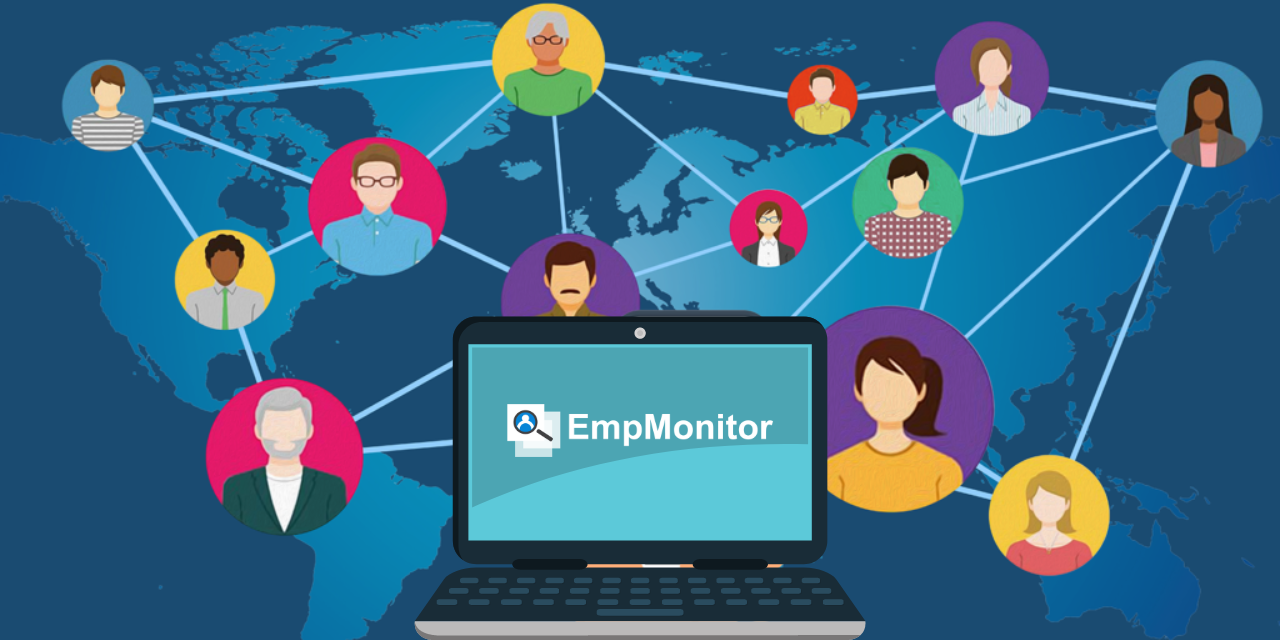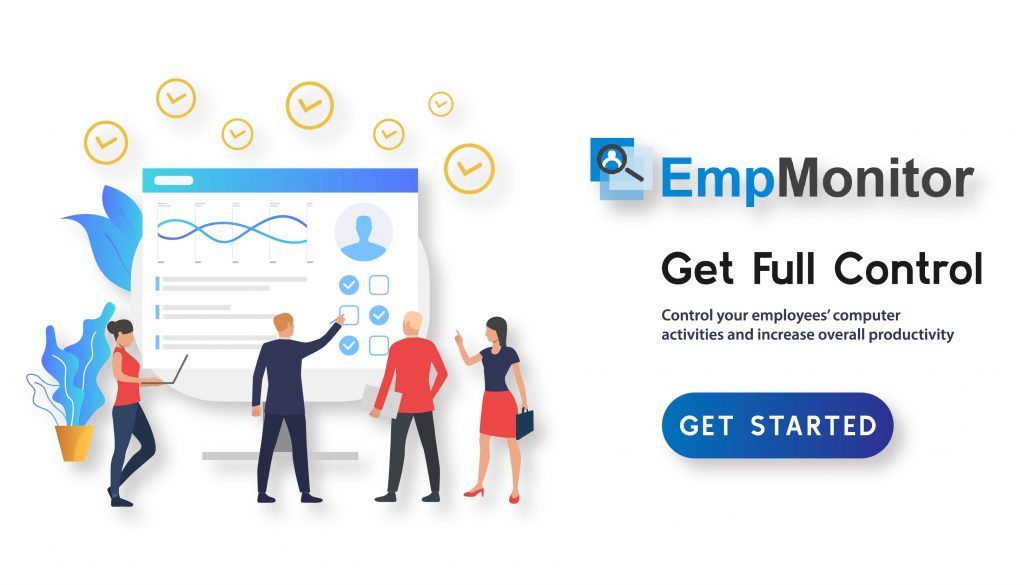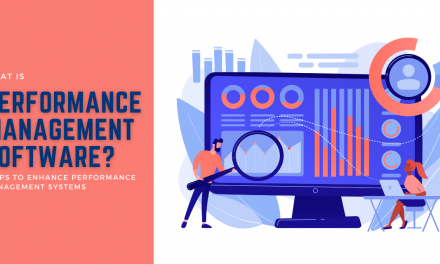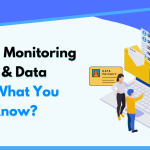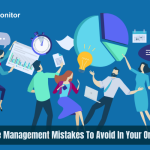Remote work is becoming more and more popular for a good reason. As the world becomes increasingly digital, companies must have options for staffing that fit their needs. By embracing remote work, companies can extend their reach and keep talented employees close to home. There are a few things you should consider before choosing to remote workforce management software-
- Technology: You should ensure your team can operate effectively without face-to-face interaction.
- Culture: Ensure that your employees are comfortable working remotely.
- Workflow: You should create processes and systems to manage work remotely.
Various nuances, such as- the level of flexibility in work schedules- should be considered while managing remote workers. Many companies are still discovering the best strategies to overcome remote challenges.
Nevertheless, proactive planning and strategizing can help you effectively manage the remote workforce. So let us first understand remote workforce management and incorporate these suggestions to unlock the potential of the remote workforce.
Listen to this Podcast to Unlock the Potential of Remote Workforce?
Plug your earphones and listen to this closely to unlock the hacks of remote workforce management.
Let’s Understand- What is Remote Workforce Management?

This term applies to overseeing employees working outside the traditional office environment, often from their homes or while traveling. Successful management of remote teams requires effective communication, well-established operations and procedures, and reliable technology infrastructure.
One of the key benefits of remote work is increased flexibility in work schedules and locations. Many remote workers are digital nomads who can work from anywhere as long as they can access electricity and a stable internet connection.
It allows businesses to tap into a global talent pool and provide employees with more autonomy and work-life balance. With remote employee monitoring management, you can sit back and relax and let work flow smoothly.
And, Why Do You Need Remote Workforce Management Software?
Whether you’re a small business or a large enterprise you need a workforce to manage your work. If the company size is big, and it’s not possible to manage work manually then it’s best to go for remote workforce management software to streamline your business.
This type of software provides a range of tools and functionalities that enable managers to manage and communicate with their teams effectively, regardless of their location.
Remote workforce management software also helps companies keep track of their remote workers’ schedules and tasks, ensuring that everyone is working efficiently and meeting their deadlines. It simplifies administrative tasks such as time-tracking, payroll, and expense management, freeing up managers’ time to focus on more strategic initiatives.
So to find the best tool let’s first understand the factors that you should consider before choosing software for your business.
What Are the Factors To Consider Before Choosing a Remote Workforce Management Software?
The present era is witnessing a surge in the adoption of remote workforce management. Therefore, people welcomed remote work culture with open arms and made room for better management- via tools or software. As a result, managing remote workforce via workforce management software became a popular choice among entrepreneurs of this era.
So, let’s look at the factors that can govern the choice of software used for remote workforce management. These factors may vary depending on the organization’s size, industry, and specific needs. Some of the most prominent factors are-
- Integration: The software should be compatible with other tools and systems to ensure seamless communication and collaboration between remote and in-office teams.
- User-Friendliness: Remote workforce management software should be easy to use and navigate, allowing for a smooth and efficient workflow for both- managers and employees.
- Security: With sensitive data getting shared and stored online, the software should have robust security features to protect against cyber threats and ensure the privacy of employee information.
- Scalability: The software should adapt to organizational needs for scaling the business.
- Functionality: Remote workforce management software should have the necessary features to effectively manage remote workers, including time tracking, project management, and communication tools.
- Cost: The software should be cost-effective and provide a good return on investment for any organization.
Overall, remote workforce management software should effectively manage the remote workforce better. Use EmpMonitor software that offers a wide range of features to help you manage your remote workforce, including time tracking, project management, communication tools, and performance monitoring.
With this software, you can ensure that your remote employees are productive and working towards your business goals. So, now let’s understand the benefits of having software in business.
How Can Remote Workforce Management Software Benefit Your Organisation?
There are many benefits to remote workforce management. By working from home, employees can save on commuting costs. And they can avoid the distractions of other people and noise. Additionally, remote workers can work from anywhere in the world.
Furthermore, remote workers often have more control over their work schedule, which gives them more flexibility. Here is the list of benefits of having Remote Workforce Management Software:
- Reduce Absenteeism: It allows employees to work from anywhere, which can reduce absenteeism due to illness, bad weather, or other personal issues that would otherwise prevent employees from coming to the office.
- Increased Productivity: Remote workforce management software offers various features that help employees streamline their work processes and manage their time effectively. It leads to increased productivity as employees can focus on their work without distractions from the office environment.
- Employee Satisfaction: Remote work provides employees with greater flexibility and autonomy, which can lead to increased job satisfaction. Such software offers employees- the tools to work independently and collaborate effectively with their colleagues, leading to a more fulfilling work experience.
- Talent Retention: Remote work offers employees greater flexibility and work-life balance, which can make them more likely to stay long-term with a company. Remote workforce management software can help businesses retain top talent by offering employees the tools they need to achieve their roles.
- Removes Office Politics: Remote work eliminates office politics that can arise in a traditional office setting. By removing the physical proximity of employees, such software creates a more inclusive work environment that focuses on productivity and collaboration rather than social hierarchies or cliques.
These were some of the benefits of having remote workforce management software. Now let’s learn about those 5 essential tools that every workforce should have in their business.
Know the 5 Essential Tools Every Business Needs for Better Remote Workforce Management!
Here are five tools that a company would need apart from remote team management software! Let’s know the tools used by most organizations for managing their remote teams:
- Communication tool: This tool is essential for facilitating collaboration among team members and improving overall productivity. Examples of communication tools are- Slack and Microsoft Teams, which offer instant messaging, video conferencing, and other collaboration features.
- Meeting tools: Remote workforce management software includes tools that facilitate- meetings- such as video conferencing apps like Zoom and Google Meet. These tools enable remote team members to participate in virtual meets, prepare presentations, and share their screens with other team members.
- Project management tools: Remote teams require tools that provide clear visibility and accountability on projects. Project management software such as Click Up or Asana helps track progress, set deadlines, assign tasks, and collaborate on projects.
- File sharing and storage tools: Remote teams require secure and quick ways to share work-related information. Tools like Google Drive or Dropbox offer ample storage space and make it easy for team members to share documents and other files in real-time.
- Productivity management tools: Remote workers need tools to track their time and productivity. Tools like EmpMonitor, offer real-time insights into employee efficiency & productivity, helping managers to track progress, monitor performance, and identify areas for improvement.
These are some of the tools to manage remote employees at the workplace that are necessary to have in business.
Dive Deeper
Unlock The Secret To Success With Employee Productivity Tracker
Workforce Management- It’s Not That Difficult As You Think, Quick Tips!
23 Ultimate Strategies For Managing Remote Employees In 2023
Conclusion
In the wake of the global pandemic, remote work has become the new normal, and businesses must adapt to this new reality to stay competitive. Remote employee management software enables the company to communicate, collaborate, and manage projects with remote teams effortlessly!
It provides a range of features, including communication tools, meeting tools, project management tools, file sharing and storage tools, and productivity management tools.
These features help overcome the challenges of managing remote teams, including the lack of face-to-face communication, the problem of tracking progress and ensuring accountability.
Moreover, with the help of EmpMonitor, businesses can access a wider talent pool, regardless of their geographic location. It leads to a more diverse and inclusive workplace necessary for long-term success.
In conclusion, worker management software is an essential tool for businesses to unlock the potential of remote work. By leveraging the power of technology, the enterprise can create a more efficient, productive, and inclusive work environment that can lead to big success in the long term. Therefore, businesses should adapt to this new way of working and embrace software to achieve success in the digital age.


